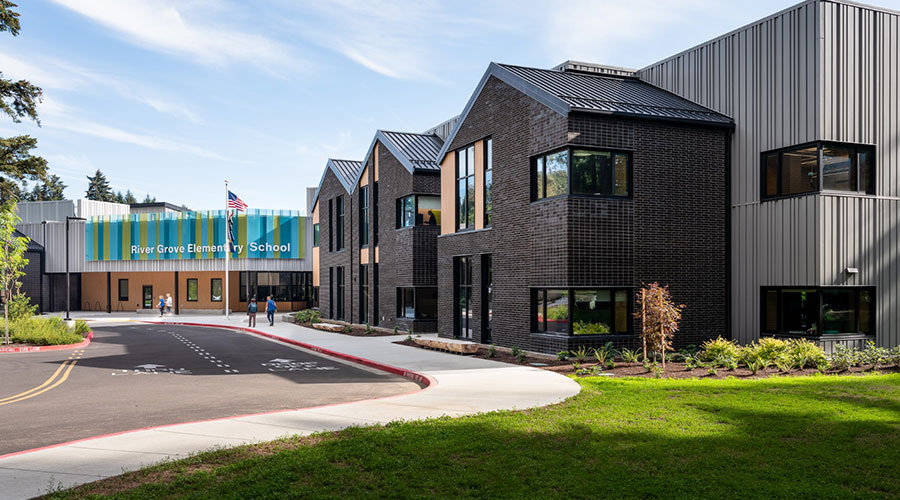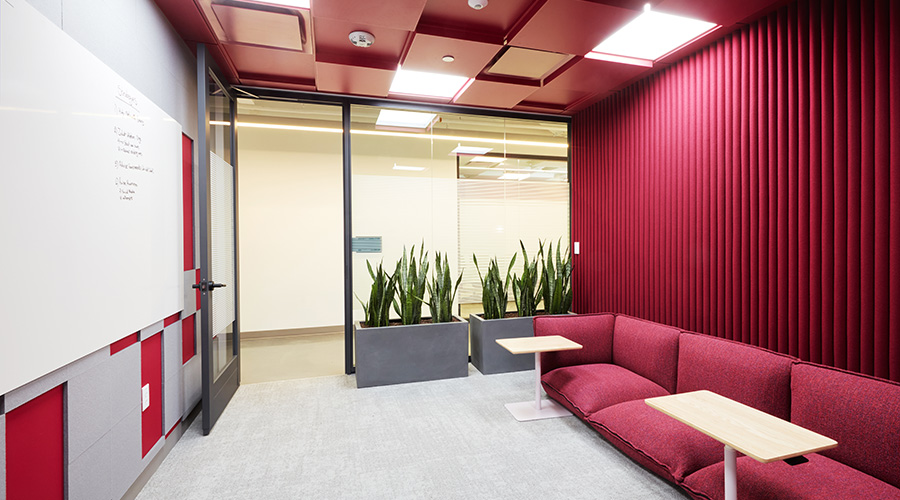Future-Proofing Tech Workspaces: Embracing Flexibility and Efficiency for Growth
Economic shifts are causing a rethinking of office culture – how will companies respond?
By Rob Kolar, Contributing Writer
Tech companies have always been at the forefront of workplace innovation and continue to lead the way as expectations around where and how people work evolve. Traditionally, tech growth has outpaced other industries, necessitating a vast portfolio of office space to fuel and future-proof expansion — often requiring tech companies to secure more space than was immediately necessary.
However, recent economic shifts and a fundamental rethinking of office use have prompted a strategic course correction. While the top 100 tech companies expanded their office footprint by 6 percent during a period of rapid growth between 2019 and 2021 according to JLL’s new Technology Office Spaces report, plateauing revenues and rising interest rates have pushed leaders to shift their priorities to focus on cost management and portfolio optimization, balancing new hybrid policies and sustainability initiatives with a culture that continues to value in-person collaboration.
As tech companies navigate these new challenges, they're not just bracing for uncertainty; they're also laying the groundwork for a resurgence, tailoring their real estate strategies to today's market realities — and requiring building owners and facility executives to meet a higher bar than ever before.
Crafting modern workspaces
The heart of company culture beats strongest when people come together in the workplace. It's where collaboration thrives and spontaneous connections form — something virtual settings haven’t been able to fully replicate. In-person interactions fuel rapid and consistent innovation, which can be less predictable with hybrid or remote setups. As such, finding the balance for hybrid schedules is crucial, with employee well-being taking center stage to attract and maintain top talent.
Tech companies are eager to bring their teams back into the office to collaborate in-person and recognize that drawing them away from home requires a modern workspace outfitted with the right amenities that earn the commute for their employees. In fact, 93 percent of corporate occupiers said they are willing to pay a premium for tech-enabled spaces, according to JLL’s 2023 Global Technology Survey.
High-quality amenities and environments that nurture community, connection, and collaboration are now essential. Features like innovation hubs, focus rooms, and work cafés, previously seen as novel, have become standard in leading tech workspaces. For building owners, that means updating spaces to draw a hospitality or residential vibe, a boutique hotel or a cozy home office to make it worth the investment.
Cutting costs while adding value
Over the past decade, tech companies have built up substantial real estate holdings, especially in coveted markets, preparing for a growth spurt. But the same top 100 technology companies that expanded their office portfolios by 14 million square feet to accommodate workforce growth between 2019 and 2021 ultimately offloaded 10 million square feet of underutilized space in Q4 2022 and Q1 2023 as the demand for physical space diminished in favor of hybrid work, according to JLL’s Technology Office Spaces report.
Now, leaders are recalibrating and optimizing their real estate portfolios to match business goals more accurately. This means rightsizing commercial real estate holdings and making smart leasing decisions, such as downsizing or subleasing surplus space. Still, while many tech leaders remain divided on real estate strategy, 36 percent believe their portfolio will expand over the next 3-5 years. Of those employees returning to the office, more than half of surveyed tech firms have reworked real estate portfolios to optimize for hybrid workplace strategies.
As tech firms operate within smaller real estate portfolios, real estate executives need to reconsider how to offer quality spaces that are inviting, inspiring, and boost productivity. Employees will return to denser workspaces provided the right amenities are in place.
Offices are moving from assigned desks and enclosed meeting spaces to more flexible collaboration space, shared seating, focused quiet workspaces, and modernized floor plans outfitted with seamless technology, adjustable workstations with ergonomic seats, and badge-operated lockers that allow for personalization with different arrangements.
Meeting real estate needs
As the previous business cycle marked by relentless growth and unexpected downsizing demonstrates, finding a sustainable balance is key to avoid overcorrecting. This requires adopting a strategic real estate approach that supports tenants’ business growth by offering flexible spaces that serve as a hub for purposeful work and collaboration, can easily be adapted for changing needs, and accommodate a diversity of employees and work styles that meet the new era's demands.
As tech companies move through uncharted waters, they're not alone. With the support of seasoned real estate advisors, tech firms can navigate these challenging times and develop strategies that cater to the varied needs of today's — and tomorrow's — business landscape. The surge in growth may have slowed, but the tide will inevitably turn. The challenge lies in building the resilience now to weather slowdowns and harness efficiency that sets the stage for a triumphant resurgence when the industry resumes its ascent.
Rob Kolar is the division president, Technology, Work Dynamics, with JLL.
Related Topics:












